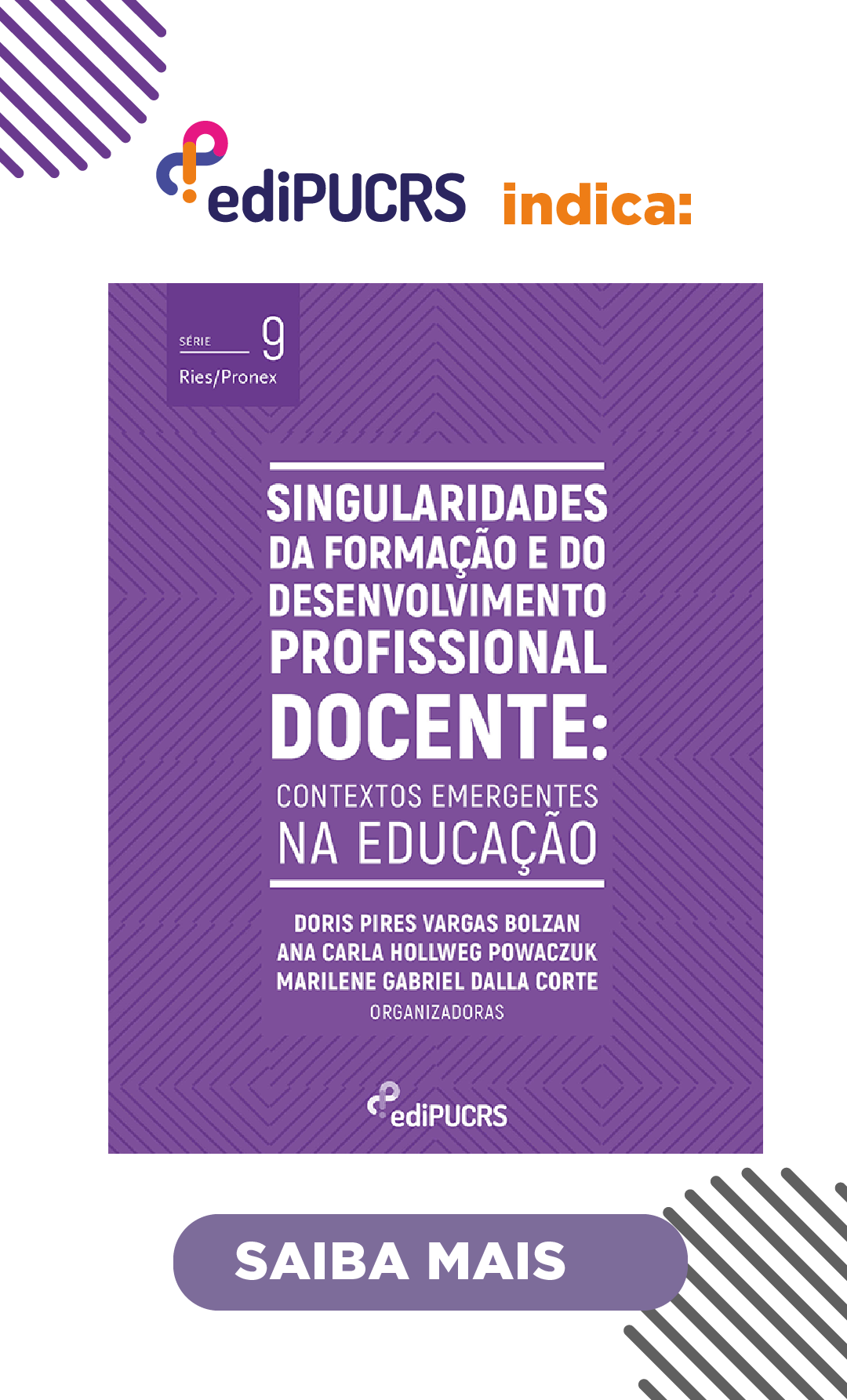The concept of formation and the dynamic of its meaning in the course of history
DOI:
https://doi.org/10.15448/2179-8435.2020.1.33337Keywords:
Formation. Occidental thought. Education.Abstract
This article aims to present the meaning attributed to the concept of formation over time, in the course of history. In researching formation, we are inevitably faced with the simplicity of a subject with which we deal daily in our lives, as well as with the complex nature derived from the unique characteristics that humanity, in the course of its trajectory, helped to constitute, in its different spaces and times, regarding this concept. From this movement comes the need to take a careful look at the nuances that are forming the idea of formation, especially in the field of education. This is a qualitative study, which has the methodological contribution to the bibliographic research. For composition of its theoretical framework we instrumentalize ourselves with the reading of: Rousseau, Kant, Gadamer, Jaeger and Hermann. In this way, it presents as a result a historical rescue of the western thought, evidencing the meaning of what the Greeks called paideia, the Latins, humanitas, the Germans, bildung and that today we call formation.Downloads
References
GADAMER, Hans-Georg. Verdade e Método I: traços fundamentais de uma hermenêutica filosófica. Tradução de Flávio Paulo Meurer. 10. ed. Petrópolis, RJ: Vozes, 2008.
GALLO, Anita Adas. A noção de cidadania em Anísio Teixeira. In: 24ª Reunião anual da ANPED – Associação Nacional de Pós-graduação e Pesquisa em Educação. Caxambu: 2001. Disponível em: < http://www.anped.org.br/sites/default/files/gt02_13.pdf >. Acesso em: 12/01/2019.
GOERGEN, Pedro. Formação ontem e hoje. In: Sobre filosofia e educação: racionalidade, diversidade e formação pedagógica. CENCI, Ângelo Vitório; DALBOSCO, Cláudio Almir; MÜHL, Eldon Henrique (Orgs.). Passo Fundo: Ed. Universidade de Passo Fundo, 2009.
HERMANN. Nadja Mara Amilibia. Autocriação e horizonte comum: ensaios sobre educação ético-estética. Ijuí: Ed. Unijuí, 2010.
JAEGER, Werner. Paideia: a formação do homem grego. São Paulo: Martins Fontes, 1986.
KANT, Immanuel. Resposta à pergunta: o que é o Esclarecimento? Traduzido por Luiz Paulo Rouanet. Disponível em: <http://coral.ufsm.br/gpforma/2senafe/PDF/b47.pdf>. Acesso em: 05/11/2018.
______. Sobre a Pedagogia. Tradução de Francisco Cock Fontanella. Piracicaba: Editora UNIMEP, 2004.
MELLO, Denis S. de; DONATO, Manuella Riane. O pensamento iluminista e o desencantamento do mundo: Modernidade e a Revolução Francesa como marco paradigmático. Revista Crítica Histórica. Maceió: ano II, nº4, julho/dezembro, 2011. Disponível em: <http://www.revista.ufal.br/criticahistorica/attachments/article/118/O%20Pensamento%20Iluminista%20e%20o%20Desencantamento%20do%20Mundo.pdf>. Acesso em: 05/08/2018.
PRESTES, Nadja Mara Hermann. Educação e racionalidade: conexões e possibilidades de uma razão comunicativa na escola. Porto Alegre: EDIPUCRS, 1996.
ROUSSEAU, Jean-Jacques. Emílio ou da educação. Tradução por Sérgio Milliet. 3. ed. Rio de Janeiro: Bertrand Brasil, 1995.
Downloads
Published
How to Cite
Issue
Section
License
Copyright (c) 0 Educação Por Escrito

This work is licensed under a Creative Commons Attribution 4.0 International License.
Copyright
The submission of originals to Educação Por Escrito implies the transfer by the authors of the right for publication. Authors retain copyright and grant the journal right of first publication. If the authors wish to include the same data into another publication, they must cite Educação Por Escrito as the site of original publication.
Creative Commons License
Except where otherwise specified, material published in this journal is licensed under a Creative Commons Attribution 4.0 International license, which allows unrestricted use, distribution and reproduction in any medium, provided the original publication is correctly cited.





